The commercial food system is one of the worst offenders of environmental degradation in the modern world. Producing the second most greenhouses gases after electricity production, the agricultural industry has left a large mark on the environmental health of our planet. Many different brands boast being organic or GMO free, but it can be hard to tell which products are actually produced in an environmentally friendly way, and what is just greenwashed marketing. Luckily, there is a way to eat delicious food and avoid the food industry all together. YES, by growing your own food.
A Better Way to Eat
Planting fruit trees, a vegetable garden, or other food crops is a great way to know exactly where your food comes from. This ensures that nothing harmful was done to it or the environment in the process of growing it.
While it may seem complicated to grow your own produce, starting out with a small edible garden can be a great way to get into gardening and learn how to grow food. With a little bit of time, effort, and care anyone can learn how to garden and reap the benefits of growing your own vegetables.
The Environmental Benefits of Growing Your Own Food
Our food system has managed to produce large quantities of food that have helped to feed lots of people. However, this abundance of food has come with a variety of negative impacts on the environment.
Luckily, eating good food does not have to come at the cost of destroying our planet. Many of the negative impacts of the food system can be bypassed by planting edible gardens and growing our own food.
Transportation
Before being eaten, food has to travel from farms to stores to homes and to restaurants. And with farms for different crops being spread out across different regions, it is estimated that food travels an average of 1,500 miles before being eaten.
The large amount of transportation associated with the food industry is responsible for a massive amount of carbon emissions. On average, every calorie of food we consume requires ten calories of fossil fuel emitting energy to transport it to us.
Eating local produce and growing your own food helps to avoid these emissions. Every piece of food you eat that comes from your own garden is one less piece of food that needs to travel hundreds of miles on a carbon emitting vehicle.
Pesticides and Fertilizers
Another impact of the food system is the pollution caused by chemical pesticides and fertilizers used in commercial farming. When a farm uses fertilizer or sprays its crops with pesticide, the harmful chemical compounds within them will leech into the soil and groundwater or get washed away with rainwater runoff and contaminate nearby water bodies.
These chemicals are often highly carcinogenic and cause great deals of soil and water pollution. On top of that, food grown with the help of these chemicals also contain carcinogenic substances. By growing food at home in raised beds, in the ground, or even as potted plants, you can ensure that no harmful chemicals are used on the plants, and won’t wind up in the environment, or on your plate.
Monocultures
A large majority of agricultural activity consists of growing only a handful of commodity crop species such as corn, rice, soybeans, and wheat. These crops often go to make different kinds of animal feeds rather than going straight to human stomachs. But the impact that this system of farming has on the environment is detrimental; many industrial farms consist of vast fields containing only one species of crop called a monoculture.
Monoculture farming strips the land of its biodiversity and disrupts the natural flow of nutrients into the soil. When a piece of land only has one species of plant on it for a long enough time, the soil degrades in quality and loses its ability to replenish nutrients. This causes many monoculture farmers to have to resort to using excess chemical fertilizers to offset the nutrient imbalance.
By growing your own food, you can choose to grow a variety of edible plants instead of focusing on producing only one type of crop like commercial agriculture. By planting a variety of species, it is possible to utilize techniques, such as crop rotation or cover crops, in your own garden that naturally replenish soil nutrients without the need of chemical fertilizers.
How to Start Growing Your Own Food
The process of growing your own food may seem intimidating at first. But by learning some basic gardening fundamentals and a few simple techniques, anyone can start to grow food at home and reduce their impact on the environment.
Getting Started
The most important part of planting a garden is proper planning. Before doing any planting it is important to know exactly what you want out of a garden. How big do you want it to be? How much money and time are you willing to spend on it? What kinds of fresh produce do you want? Once you understand what exactly you want out of your garden, it’s time to start thinking about the logistics of planting.
When going to plant seeds or young plants it is important to know when and where the plants should be planted. Different species of crops will need to be planted at different times of the year depending on what region they are being planted in. In the US, regions are divided into plant hardiness zones. It is important to make sure the plants you want to grow will do well in your zone and climate of the Earth, and to know the best season they should be planted.
Another important factor for gardening and growing food is soil health. Good soil is essential for healthy plants as they rely on it to absorb nutrients and water and stay stabilized. While industrial farming uses harmful chemical fertilizers to enhance their soil, there are different environmentally friendly ways of enhancing your soil and growing healthier crops.
Environmentally Friendly Gardening
With limited space, even on a balcony you can grow food in hanging baskets, small containers or try vertical gardening. You can grow herbs even on a window sill. The two main helpful tips needed for a healthy home garden in your backyard or outdoor space are composting and crop rotation.
Composting
Composting is a great way to make healthier soil in your garden while reducing food waste. By disposing organic food waste in outdoor piles it will break down into dense nutrient rich soil called compost. Using compost in your garden not only acts as an incredibly effective natural fertilizer, but also prevents food waste from being sent off to methane producing landfills.
Crop Rotation
Industrial farms often plant one type of crop in large-scale monocultures that degrades soil quality. In a natural setting soil relies on a multitude of plant species to restore and cycle nutrients in the soil.
This process can be replicated in a garden through a process called crop rotation, whereby different crops are planted in different spots each season. This allows the soil to naturally restore nutrients, eliminating the need for chemical fertilizers.
Growing Your Own Food And Religion
A 2020 Reuters article describes how Cubans were called on to grow their own food during the COVID pandemic and in the 1990s. In the ’90s there was a kind of “green revolution” in Cuba as the Soviet Union collapsed, along with it’s support for Cuba, promoting a deep economic depression. To avoid starvation “Cuba became something of an organic farming pioneer in the 1990s, developing techniques like worm composting, soil conservation and the use of biopesticides, to replace imported supplies and large scale monoculture.”
In 2020, as imports shut down because of COVID, Cubans were called upon to again return to growing their own food as in the 1990s. The article highlights Nelson Piloto, who pulled up the lawn in a courtyard Temple of the Abakua Afro-Cuban religious brotherhood in Havana to “plant bell peppers and cassava in the face of Cuba’s looming food crisis.”
Many religious buildings are surrounded by huge lawns full of grass or weeds. Perhaps more communities should follow Piloto’s example and turn their lawns into gardens. In the words of sustainable agriculture enthusiast Marnia Briones, “It’s great more people are planting but it cannot just be when there is a crisis… It should be fomented as a healthier lifestyle for the whole of humanity.” Don’t wait around for crisis to strike. Call upon your religious community to lead by example and save our future.
* Featured image source


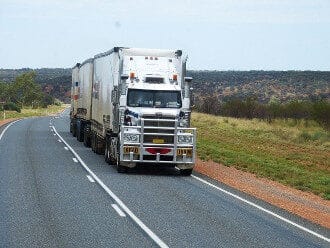
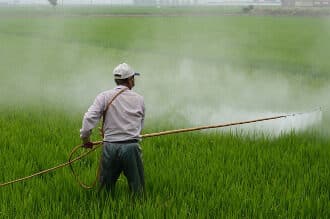
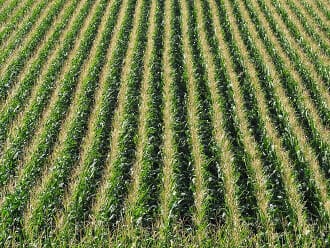
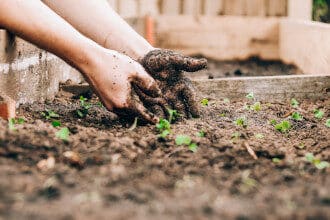
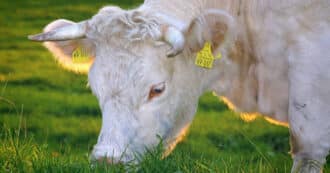
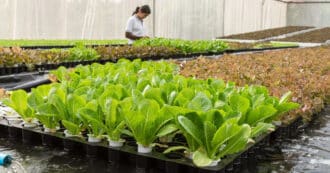
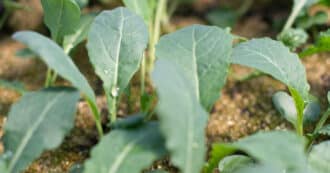
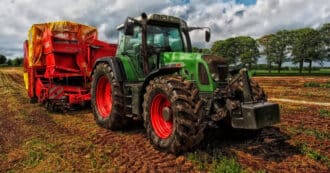
Bonjour
Comment ..Collaborer avec votre plateforme
Dans l Exchange des Jeunes Entrepreneurs
De l Education et Formation Continue Entreprenariale
Et Art des Institutions Professionels et Universitaires
De Notre Organisation
Fondation Fraternite Rev Pere Maurice D Hoore RDC
Zone Afrique
Et
Dans 2 Zones Amerique
Canada?
Pour ce Programme
Nous nous turnt a Coeur dans la Poursuite des Objectify de Developpement Durable?
Je suis a New York
Et Travail aussi
En Afrique Centrale
RDC Congo
Pour
Appuyer les Differentes Institutions Scolaires Professionels, Entreprenariale et Universite
Dans les Objectify de Developpement Durable
Adopte’ par la Nations unies Ecosoc For NGOS
Save